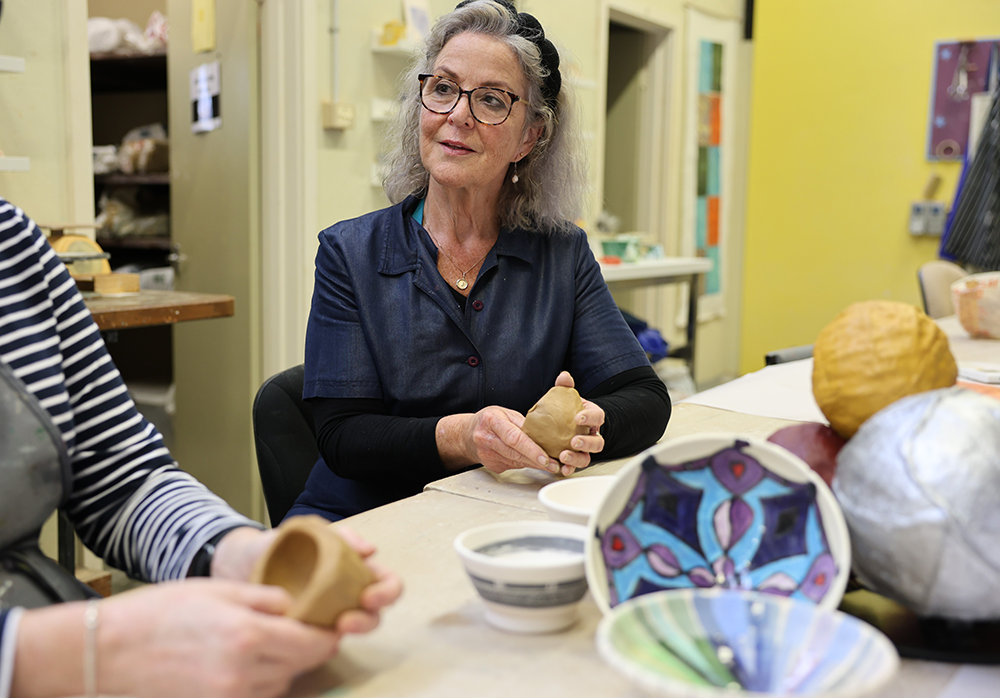Creative Arts Therapy as a Therapeutic Process achieving results
 Art Therapist Barbara Watson
Art Therapist Barbara Watson
Graylands Hospital is harnessing the healing power of creative expression to support patients.
This psychotherapeutic approach utilises various creative modalities and is proving to make a real difference for consumers and offers another avenue for communication of feelings and emotions.
Creative Expression Centre for Arts Therapy (CECAT) is making a difference. Art Therapist Barbara Watson said she regularly sees the great results arts therapy provides, and how it helps consumers express emotions that can be difficult to articulate in words.
“Art therapists use visual arts, drama and movement, music, creative writing, sand play and clay therapy,” she said.
With the guidance and support of an art therapist, therapeutic interventions focus on assisting consumers to discover new ways to express themselves, deepen their self-understanding and develop a positive outlet to express themselves and a pathway to recover from past trauma.
CECAT client Jane* was first introduced to art therapy after she sustained a significant head injury.
“I started doing arts therapy sessions to help me deal with post-traumatic stress disorder (PTSD), anxiety and deep depression,” Jane said.
“I find the stitching sessions very therapeutic. It takes me to a different place, the repetition and rhythm of the stitching helps reduce my PTSD, lowers my anxiety, and relieves the depression and nightmares.”
Emma* with a diagnosis of autism has struggled to leave home, but art therapy increased her confidence.
“I’ve learnt to reconnect with the outside world, use public transport because the incentive to attend CECAT was so strong,” Emma said.
“Art therapy worked better for me than any other therapy because I can’t use my words. I have not self-harmed since attending CECAT”.
Arts therapists are university trained and the profession is regulated by the Australian, New Zealand and Asian Creative Arts Therapies Association (ANZACATA).
*not patient’s real name.

